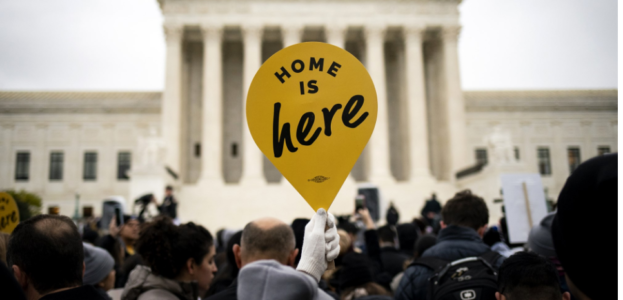News > Fact Sheets
DACA: Frequently Asked Questions

Posted on Oct 06 2022
This Frequently Asked Questions page is current as of January 31, 2025. It is not legal advice.
Printable PDF version of this Frequently Asked Questions sheet.
Haga click aquí para esta hoja informativa en español.
Latest Update 01/17/2025 The Fifth Circuit Court of Appeals ruled on the case challenging the legality of DACA. This case challenged the federal regulation establishing DACA, which was formalized by the Biden administration in August 2022, with an effective date of October 31, 2022. The district court said that regulation is illegal.
The Fifth Circuit decided that the district court decision was partly right and partly needs further consideration. The Fifth Circuit sent the case back to the district court for further consideration. The district court may reconsider the case on remand and issue other rulings.
The Fifth Circuit also preserved the stay that allows present DACA holders to continue in that status and to renew their status.
The Fifth Circuit decision may be appealed to the U.S. Supreme Court.
A long line of legal challenges to DACA dates back to the Trump administration’s attempt to end DACA in 2017. For more information on the legal challenges over the years, see Deferred Action for Childhood Arrivals (DACA).
I already have DACA. How do the ongoing legal cases affect me?
According to the decision, DACA holders still have DACA status and can continue to renew their DACA status for now. Consult with a qualified immigration lawyer about your particular situation.
I am eligible for DACA, but I have not yet submitted my initial application. Can I apply?
According to the decision, USCIS can still accept initial DACA applications, but USCIS cannot approve them. Consult with a qualified immigration lawyer about your particular situation.
I am eligible for DACA, and I submitted my initial application. Now what?
Initial DACA applications are on hold. No new DACA first time applications will be approved at this time. Court decisions block USCIS from approving any new DACA cases. This means that all people who have submitted a DACA initial application, (i.e., those that never had DACA and are applying for the first time, or those whose DACA has lapsed for over one year) and have not received an approval from USCIS, will have their application held. This applies to all initial cases that were not approved before July 16, 2021.
I had DACA, but my DACA expired. Can I renew my DACA?
That depends on how long it has been since your DACA expired.
If you submit a DACA request more than one year since your last grant of DACA expired or after your most recent DACA grant was terminated (at any time), your request is considered an initial request, not a renewal, under USCIS policy.
USCIS can accept initial DACA requests, but it cannot approve them while this court order remains in effect. You will be issued a receipt notice, and your payment will be accepted. However, the request will not be further processed, in compliance with the court order.
Consult with a qualified immigration lawyer about your particular situation.
I have DACA and received Advance Parole. How do the court challenges affect me?
This decision does not address Advance Parole. Please consult with a qualified immigration lawyer before you decide to leave the U.S.
Where can I call if I have DACA and want to file to renew?
Please call ILCM at 1-800-223-1368 on Mondays 9am-1pm, Tuesdays 1-4pm, Wednesdays 9am -1pm, and Thursdays 3pm-7pm for assistance.
Where can I find mental health support?
United We Dream has created a tool kit to support mental health. Please see this website to review their resources: Mental Health Toolkit | United We Dream
For counseling services, you can contact the Walk-In Counseling Center for free remote (phone or on-line) services. See their website for information: https://walkin.org/counseling-services/locations-hours/ If you want an appointment in Spanish, please call 612-870-0565 x2.
Where can I get more updates about DACA?
To keep up with the latest developments on DACA and other immigration issues, follow ILCM on Facebook and Instagram.
How can the appeals court declare DACA unlawful when the Supreme Court saved DACA in 2020?
This answer is complicated and confusing.
In 2020, the Supreme Court was asked to answer one main question: “Did President Trump follow the requirements of the law when he ended DACA?” The Supreme Court answered that question “no.”
At that time, the Supreme Court was not asked to answer and did not answer the question: “Did President Obama follow the requirements of the law when he created DACA?” This question was asked in the case that was before the appeals court, and the answer from the lower court and the appeals court was “No, President Obama did not follow the requirements of the law when he created DACA.”
What is happening now?
The current case challenges the federal regulation establishing DACA, issued by the Biden administration, posing the question of whether DACA is legal. The district court answered “No, DACA is not legal.” Now the Fifth Circuit Court of Appeals will make a ruling. Then that ruling may be appealed to the U.S. Supreme Court.




